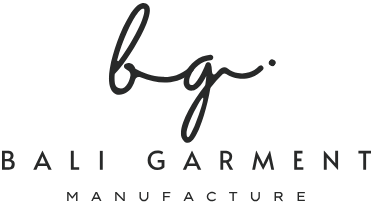The fashion industry has long been celebrated for its creativity, innovation, and ability to shape culture. However, behind the glamour of runways and glossy campaigns lies a reality that has raised serious concerns—poor labor conditions, environmental degradation, and unsustainable practices. In recent years, consumers, activists, and even governments have begun demanding change, and at the heart of this transformation is the concept of ethical manufacturing in fashion. More than just a trend, ethical manufacturing has become a necessity for an industry striving to balance growth with responsibility.
Understanding Ethical Manufacturing
Ethical manufacturing refers to the practice of producing clothing in a way that respects human rights, safeguards the environment, and maintains transparency throughout the supply chain. Unlike fast fashion, which thrives on mass production, low wages, and disposable trends, ethical fashion values quality over quantity and sustainability over exploitation. It’s about creating garments that are not only beautiful but also meaningful—products that consumers can wear proudly, knowing they were made under fair and responsible conditions.
At its core, ethical manufacturing addresses three main pillars: fair labor, environmental sustainability, and corporate transparency. These elements ensure that fashion businesses operate with integrity and contribute positively to society rather than depleting it.
Fair Labor Practices
Perhaps the most widely discussed aspect of ethical fashion is how workers are treated. Many of the world’s clothing factories are located in developing countries, where workers often face unsafe environments, excessive hours, and extremely low wages. Tragedies like the 2013 Rana Plaza collapse in Bangladesh, which killed more than 1,100 garment workers, exposed the dangers of neglecting human rights in fashion manufacturing.
Ethical manufacturing seeks to eliminate such injustices by ensuring workers receive fair wages, safe working conditions, and respect as skilled professionals. Brands that commit to ethical production often partner with certified factories, provide healthcare and benefits, and empower workers by giving them a voice in their workplaces. Beyond improving lives, fair labor practices also result in higher-quality garments, as workers who are respected and valued are more motivated to create excellent products.
Environmental Responsibility
The environmental toll of fashion is staggering. From excessive water consumption in cotton farming to pollution from textile dyes and the mountains of waste created by fast fashion, the industry is one of the largest contributors to global ecological problems. Ethical manufacturing directly tackles this issue by embracing sustainable materials and processes.
Brands committed to ethical practices often use eco-friendly fabrics such as organic cotton, hemp, bamboo, linen, and rayon made from renewable sources. They adopt low-impact dyeing methods, reduce energy consumption, and recycle textile waste wherever possible. Some even implement zero-waste design principles, ensuring that every piece of fabric is used efficiently. By making these choices, ethical manufacturers not only reduce environmental damage but also set an example for the rest of the industry to follow.
Transparency and Consumer Trust
Another cornerstone of ethical manufacturing is transparency. Modern consumers are no longer satisfied with vague labels or empty promises; they want to know the story behind their clothes. Where were they made? Who made them? What materials were used? Ethical fashion brands recognize this demand and strive to provide clear, verifiable information about their production processes.
By being open and transparent, brands build trust and loyalty with their customers. Studies show that younger generations, particularly Millennials and Gen Z, prefer to shop with brands that share their values and demonstrate authenticity. This means that ethical manufacturing is not only the right thing to do—it also makes strong business sense.
The Business Case for Ethical Fashion
Far from being a burden, ethical manufacturing offers long-term advantages for fashion businesses. While it may initially involve higher costs, these investments pay off in multiple ways:
Brand Reputation: Companies known for treating workers well and protecting the environment enjoy stronger reputations and consumer trust.
Customer Loyalty: Shoppers who connect with a brand’s ethical values are more likely to return and recommend the brand to others.
Market Differentiation: In a crowded fashion industry, ethical practices set brands apart from fast fashion competitors.
Future-Readiness: With sustainability regulations and consumer expectations on the rise, ethical manufacturing prepares businesses for long-term resilience.
The Cultural Shift Toward Ethical Fashion
The rise of ethical manufacturing is not just a passing movement—it reflects a broader cultural shift toward conscious consumption. More people are asking questions about the origins of their clothing, rejecting disposable fashion, and seeking out brands that align with their values. Fashion influencers, sustainability advocates, and celebrities have also amplified the message, encouraging millions to rethink their buying habits.
In Bali and other hubs of ethical garment production, many manufacturers are already responding to this demand by offering sustainable fabrics, fair wages, and eco-conscious methods. These initiatives not only benefit the local economy but also position these regions as leaders in the future of fashion.
The importance of ethical manufacturing in fashion cannot be overstated. It is a movement that protects garment workers, safeguards the planet, and builds stronger connections between brands and consumers. More than that, it represents a vision of fashion that is compassionate, transparent, and sustainable—a future where style does not come at the expense of people or the environment.
As consumers, every purchase we make sends a message about the kind of world we want to live in. And as businesses, every decision shapes the legacy we leave behind. By embracing ethical manufacturing, the fashion industry has the power not only to create beautiful clothes but also to create a better world.
The Importance of Ethical Manufacturing in Fashion


Manufacturing partner for fashion business, offering comprehensive solutions to streamline your path to success.
Our Services
Quick Link
Contact Info
© 2023 Bali Garment Manufacture all rights reserved.

